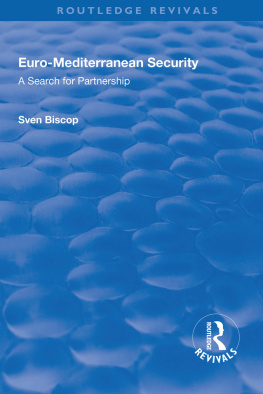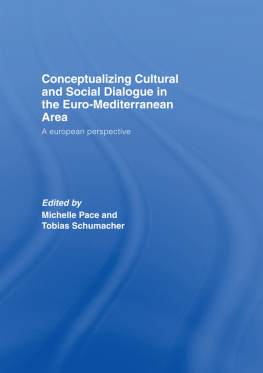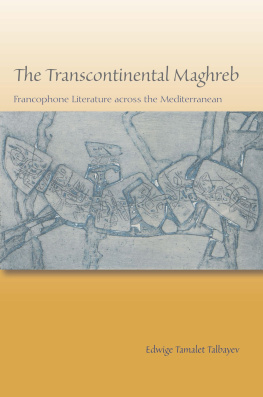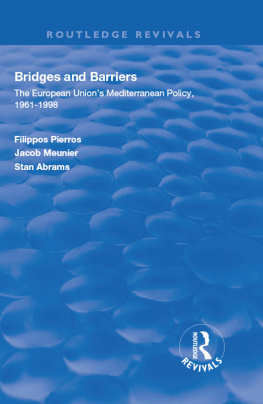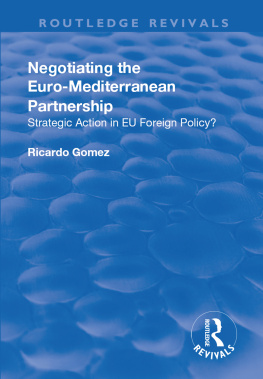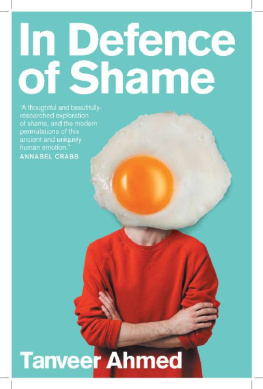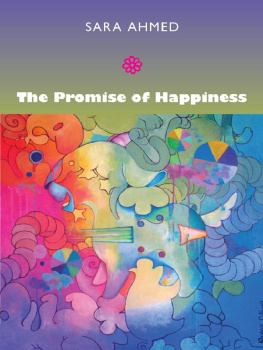First published 2000 by Ashgate Publishing
Reissued 2018 by Routledge
2 Park Square, Milton Park, Abingdon, Oxon OX14 4RN
711 Third Avenue, New York, NY 10017, USA
Routledge is an imprint of the Taylor & Francis Group, an informa business
Copyright Ahmed Aghrout 2000
All rights reserved. No part of this book may be reprinted or reproduced or utilised in any form or by any electronic, mechanical, or other means, now known or hereafter invented, including photocopying and recording, or in any information storage or retrieval system, without permission in writing from the publishers.
Notice:
Product or corporate names may be trademarks or registered trademarks, and are used only for identification and explanation without intent to infringe.
Publishers Note
The publisher has gone to great lengths to ensure the quality of this reprint but points out that some imperfections in the original copies may be apparent.
Disclaimer
The publisher has made every effort to trace copyright holders and welcomes correspondence from those they have been unable to contact.
A Library of Congress record exists under LC control number: 00108817
ISBN 13: 978-1-138-73004-5 (hbk)
ISBN 13: 978-1-315-18954-3 (ebk)
I have been given much assistance from many people during the production of this book. It would be impossible to name them all in a brief preface. However, I wish to acknowledge my deepest debt of gratitude to Professor Martin Alexander whose advice, encouragement and stimulating remarks have sustained my efforts throughout the preparation of this study.
I would also like to record my gratitude to Professor John Keiger for his time and efforts in reading and providing comments on the manuscript despite his busy schedule.
The professional support and encouragement from Professors Avril Horner and Geoff Harris at the European Studies Research Institute, the University of Salford, are also greatly appreciated.
I must extend my gratitude to Nacereddine Haddaoui and all staff at the Department of Economics, the University of Stif, for their understanding and valuable cooperation.
I would also like to take this opportunity to thank Jocelyn Evans, Andrew Geddes and Paul Maddrell for their review of parts of the study.
A great debt is owed to the librarians at the University of Salford Library, particularly Helen Mills and John Percy for their valuable assistance in helping to obtain material for this research.
On a special note, I wish to express my sincere thanks to my family, most notably Rachid, Hassiba, Mouatez and Chouaieb for being a source of constant support and encouragement. My thanks also go to my friends, Djamel Ferradj, Hakim Meliani, Redha Bougherira, Fadhl al-Rashid, Chafik Allaoui, Nabil Bensabai and Hassan Lounis for their unwavering moral support.
My thanks are also due to Kath Capper, Elaine Smith, Lesley Harris, Wendy Dodgson and Louise Pickles for their help and understanding during the preparation and completion of this work. Finally, full responsibility for the content of the book rests with me.
The establishment of the European Economic Community was concomitant with a commitment in which the founding Member States emphasised their readiness to preserve and eventually develop the special relationships that had previously existed between them and their former colonies. It was in this context that the Maghreb countries (Algeria, Morocco and Tunisia), which by virtue of the close relations they had developed with France during the colonial period, were first among the countries on Europes southern borders to seek to establish with the then new entity links that would preserve their existing status and ensure their access to the European market on favourable terms. Originally that was the starting point for the inception of the Euro-Maghreb relationship. This relationship was to develop afterwards on the basis of the principle of association stipulated under the provisions of Article 228 of the Rome Treaty.
Within the Mediterranean policy of the Community, this relationship has undergone various stages in its evolution. These can be seen as a reflection of the different approaches attempted by the European Community/European Union (EC/EU hereafter) towards the Maghreb region. The first stage was associated with the trade arrangements which the Community concluded with Morocco and Tunisia in 1969. They were limited in both scope and time as they were solely commercial by nature and operational only for a five-year period. Though preferential in kind, they were subject to the granting of reverse preferences from the beneficiaries in favour of Community exports. In short, one way of characterising this initial approach is that it was no more than a partial EC response to what the Maghreb countries aspired to receive.



